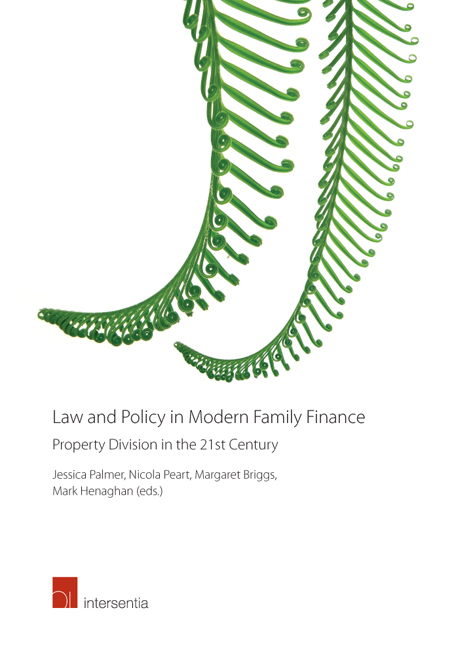Book contents
- Frontmatter
- Foreword
- Acknowledgements
- Contents
- Table of Cases
- List of Contributors
- Chapter 1 Introduction
- PART I WHO SHOULD BE COVERED BY A PROPERTY SHARING REGIME?
- PART II WHAT PROPERTY SHOULD BE COVERED BY A PROPERTY SHARING REGIME?
- PART III HOW SHOULD PROPERTY BE SHARED AT THE END OF A RELATIONSHIP?
- Chapter 11 Should the Regime be Discretionary or Rules-Based?
- Chapter 12 Sharing Family Finances at the End of a Relationship
- Chapter 13 Should a Property Sharing Regime be Mandatory or Optional?
- Chapter 14 Contracting Out of the Default Relationship Property Regime – Comparative Observations
- Chapter 15 Maintenance – Time for a Clean Break?
- Index
Chapter 15 - Maintenance – Time for a Clean Break?
from PART III - HOW SHOULD PROPERTY BE SHARED AT THE END OF A RELATIONSHIP?
Published online by Cambridge University Press: 29 September 2018
- Frontmatter
- Foreword
- Acknowledgements
- Contents
- Table of Cases
- List of Contributors
- Chapter 1 Introduction
- PART I WHO SHOULD BE COVERED BY A PROPERTY SHARING REGIME?
- PART II WHAT PROPERTY SHOULD BE COVERED BY A PROPERTY SHARING REGIME?
- PART III HOW SHOULD PROPERTY BE SHARED AT THE END OF A RELATIONSHIP?
- Chapter 11 Should the Regime be Discretionary or Rules-Based?
- Chapter 12 Sharing Family Finances at the End of a Relationship
- Chapter 13 Should a Property Sharing Regime be Mandatory or Optional?
- Chapter 14 Contracting Out of the Default Relationship Property Regime – Comparative Observations
- Chapter 15 Maintenance – Time for a Clean Break?
- Index
Summary
In New Zealand, the relationship property and adult maintenance regimes on the breakdown of a marriage, civil union, or de facto relationship have long been dealt with under two discrete legislative regimes. Relationship property assets of the parties are divided pursuant to the detailed provisions of the Property (Relationships) Act 1976 (NZ) (‘PRA’), whereas the adult maintenance and future income needs of any one party are governed by the essentially discretionary provisions found in Part 6 of the Family Proceedings Act 1980 (NZ) (‘FPA’). While the two regimes are clearly distinct, there is nevertheless an acknowledged complementarity in their policies. After all, both share the common goal of facilitating a fair resolution of financial problems ensuing from a failed relationship, and the legislative amendments in 2001 to both the PRA and the FPA were designed to'sit alongside ‘each other.
In 2016 the New Zealand Law Commission commenced a review of the PRA. This review provides an ideal opportunity to reflect on whether there could now be further integration of the two regimes and, indeed, whether the concept of separate adult maintenance even remains justifiable in principle at all. In particular, given the regime for property division in New Zealand encompasses compensation for relationship-derived economic disparities (though admittedly a little incongruously), it may be timely to reconsider the purpose and future of our so-called rehabilitative, needs-based maintenance. It may be time to think about fortifying the ‘clean break‘ principle.
The clean break principle is premised on the notion that the parties will use their respective shares of the relationship property to start afresh. Its purpose is to achieve financial finality and to assist the parties to self-determine and become self-sufficient. While no overt or implicit reference to this principle can be found in any of the specific provisions of the PRA, including in sections 1M and 1N which set out the purposes and principles of the PRA, there can be no doubt that the statutory regime as a whole is firmly grounded on the philosophy that ‘there should be a clean break between the parties as soon as practicable, with each able to take up their future life independently of the other’.
- Type
- Chapter
- Information
- Law and Policy in Modern Family FinanceProperty Division in the 21st Century, pp. 393 - 414Publisher: IntersentiaPrint publication year: 2017



